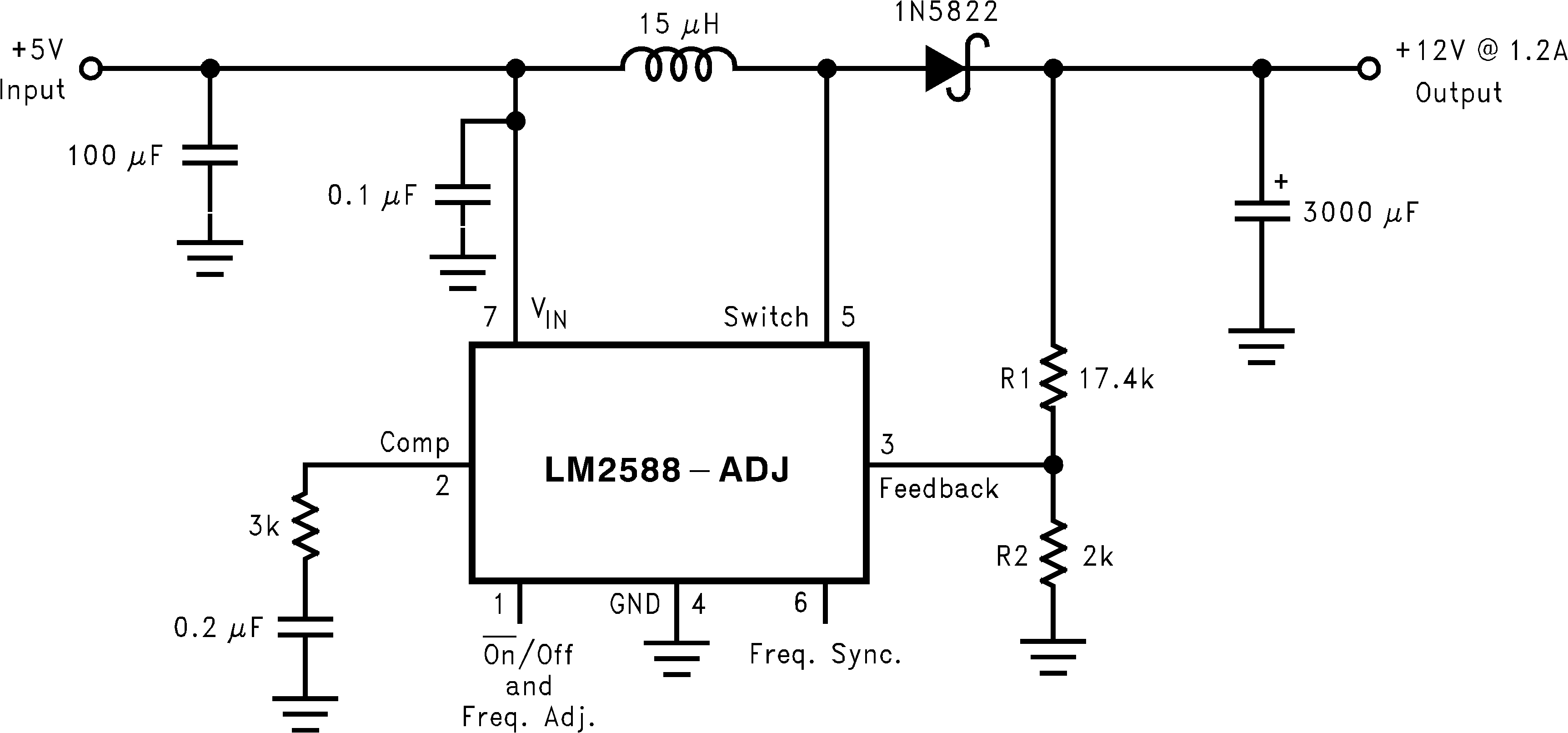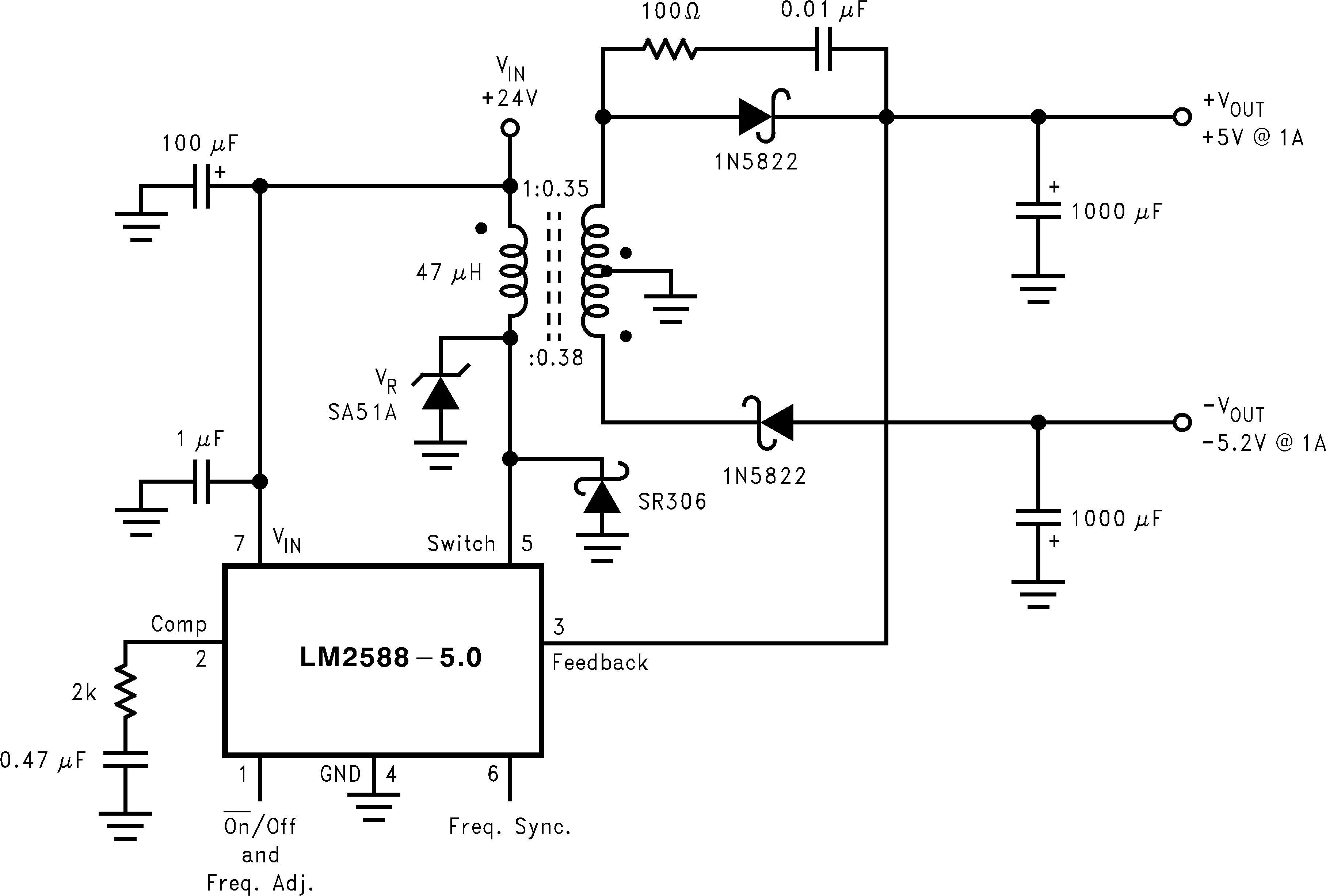JAJS843E April 1998 – June 2019 LM2588
PRODUCTION DATA.
- 1 特長
- 2 代表的なアプリケーション
- 3 概要
- 4 改訂履歴
- 5 概要(続き)
- 6 Pin Configurations
-
7 Specifications
- 7.1 Absolute Maximum Ratings
- 7.2 ESD Ratings
- 7.3 Recommended Operating Ratings
- 7.4 Electrical Characteristics: 3.3 V
- 7.5 Electrical Characteristics: 5 V
- 7.6 Electrical Characteristics: 12 V
- 7.7 Electrical Characteristics: Adjustable
- 7.8 Electrical Characteristics: All Output Voltage Versions
- 7.9 Typical Characteristics
- 8 Detailed Description
- 9 Application and Implementation
- 10Layout
- 11デバイスおよびドキュメントのサポート
- 12メカニカル、パッケージ、および注文情報
パッケージ・オプション
メカニカル・データ(パッケージ|ピン)
サーマルパッド・メカニカル・データ
- KTW|7
発注情報
8.3.7 Short-Circuit Condition
Due to the inherent nature of boost regulators, when the output is shorted (see Figure 23 ), current flows directly from the input, through the inductor and the diode, to the output, bypassing the switch. The current limit of the switch does not limit the output current for the entire circuit. To protect the load and prevent damage to the switch, the current must be externally limited, either by the input supply or at the output with an external current limit circuit. The external limit should be set to the maximum switch current of the device, which is 5 A.
In a flyback regulator application (Figure 24 ), using the standard transformers, the LM2588 survives a short circuit to the main output. When the output voltage drops to 80% of its nominal value, the frequency will drop to 25 kHz. With a lower frequency, off times are larger. With the longer off times, the transformer can release all of its stored energy before the switch turns back on. Hence, the switch turns on initially with zero current at its collector. In this condition, the switch current limit will limit the peak current, saving the device.
 Figure 23. Boost Regulator
Figure 23. Boost Regulator  Figure 24. Flyback Regulator
Figure 24. Flyback Regulator